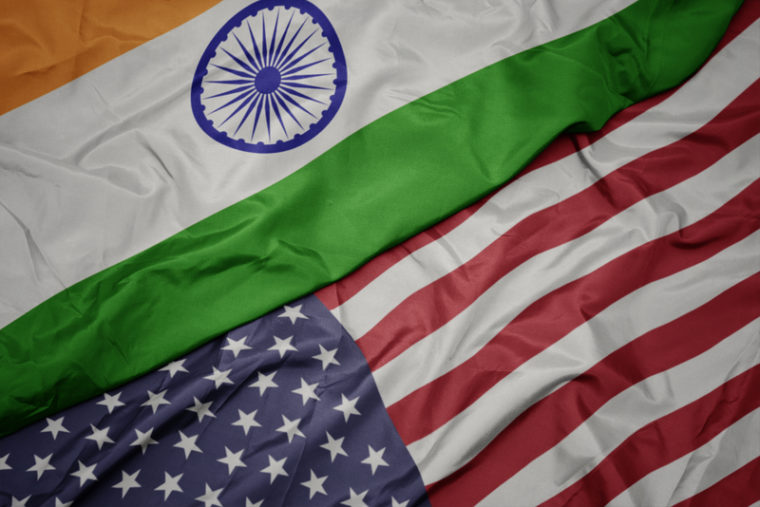
As President Joe Biden and Indian Prime Minister Narendra Modi head into their bilateral meeting tomorrow and the G20 summit, a lurking shadow will be China’s angst at India’s potential rise as the eastern Pacific’s superpower.
China’s Xi Jinping as already signaled his apprehension by his last-minute decision to be absent and send his Premier Li Qiang instead.
Modi’s increasing closeness to Biden and the US has put Xi in a quandary. Xi has declared friendship without limits with Russian President Vladimir Putin but Russia is a fading power that will be a burden on China instead of being an asset in a potential face-off with the US.
Biden has a fast-rising India ruled by a resilient Modi, who won each of two previous elections through relentless campaigning in a messy democracy of nearly 950 million eligible voters.
This political capital is remarkable since India’s people have thousands of ethnic and cultural differences, 22 separate official languages out of around 121 recognized languages, 270 mother tongues and innumerable dialects.
Now, Modi is determined to use the G20 summit to reinforce cooperation in global affairs by making the world’s 60 richest and militarily most powerful countries take account of the cries for peace and economic collaboration of more than 150 developing countries and emerging markets .
His G20 summit is designed to put the world’s rich and poor on the same train of the indisputable human right to development, health, prosperity and peace. This is a crucial necessity for humankind careening towards devastating climate change.
He is driven by an ancient Indian adage that all the world’s people are an interconnected multi-faceted family and each country and community has a fundamental duty to contribute to peace, tranquility and prosperity for everyone.
The brutal war in Ukraine, angry hostility between the US and Russia, and the sharpening divides between Washington and Beijing stand in the way. But Modi is devising methods to walk around those boulders with Biden, without alienating China, to lift up the world’s neglected billions with American and Western help.
To Modi’s many domestic and international critics, he has foolhardy ambition and self-serving intent. But Modi has always been a maverick. He has risen from the underclass of India’s poor masses and was trained from childhood in self-reliance in the sense of fulfilling his own needs by himself. His burning ambition is to empower Indians to take care of themselves and their country in partnership with others but without dependence on anyone.
He was educated in local schools that cater to the country’s poorer people and has been in the dusty rough and tumble of India’s ferocious politics for more than 50 years. He is the first prime minister with a political base strong enough to openly embrace America after decades of mistrust.
His vision and way of thinking is unlike the Indian elites, schooled at Harrow, Harvard and Oxford, that ruled the country before him. He sees the world differently and India’s place in it differently.
“I present my country to the world as my country is, and myself, as I am,” he told the Wall Street Journal before a successful State visit to Washington in June.
He is the first G20 president to have conducted preparatory meetings and ministerial negotiations in 200 cities across the country to demonstrate the diversity of India to foreign dignitaries through direct experience.
Many analysts are concluding that the G20 summit will stumble grievously because Moscow is determined not to sign any declaration that blames the Ukraine war on Russian aggression while Washington and its allies will refuse to sign anything that does not blame Russia.
But this should not be the yardstick for measuring the summit’s success. Washington founded G20 to better handle economic and financial crises by engaging China, Russia, and major emerging countries in global economic governance alongside the US and its rich nation allies.
Modi is providing leadership in structuring the G20 to deal with a much wider platform of economic and financial cooperation, including vital future themes like the digital economy, cyber security, and reducing unsustainable debt burdens.
He is tightly focused on quickly improving access of poorer countries to alternative energies and high-tech battery and semiconductor supply chains crucial for alleviating the catastrophic impacts of climate change. He believes, like many in America and the West, that those countries, which house the overwhelming majority of the earth’s people, must be made more self-reliant if humankind is to survive without speeding its own extinction.
Agreements reached at the G20 summit may not be optimal because of the very sharp hostility between the West and Russia and widening economic war with China.
But it will be historic because for the first time it will open systemic pathways to collaboratively bring investment, technology and manufacturing capabilities to make developing countries more prosperous and, thus, better friends of Washington.
















